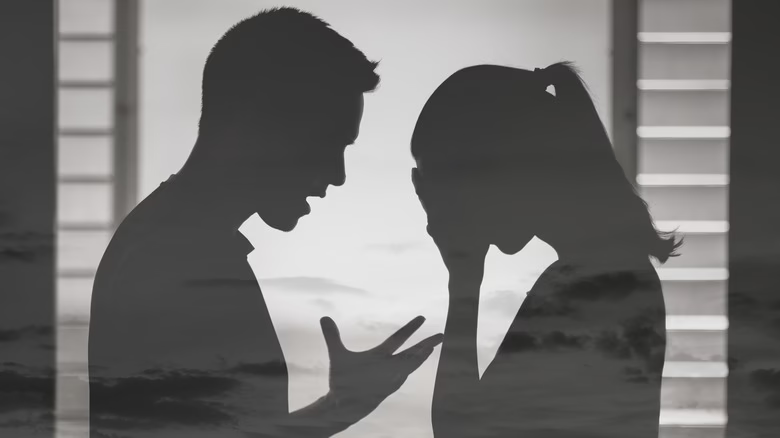Relationships can be complicated—and even the healthiest ones go through stressful phases. But there’s a difference between everyday relationship challenges and the emotional, psychological, or physical harm that comes from a toxic relationship.
If you’ve ever wondered, “My relationship is toxic… but how do I know for sure?”
Or
“Why do I keep ending up in unhealthy relationships?”
You’re not alone.
Toxic relationships are far more common than people talk about. They don’t always look loud, chaotic, or dramatic. Many are quiet, subtle, and emotionally draining—slowly affecting your confidence, self-worth, and mental health.
This guide breaks down everything you need to know:
✅ What a toxic relationship really is
✅ The major signs you’re in one
✅ The psychological causes behind toxic dynamics
✅ Why people stay
✅ How to cope—and how to leave safely if needed
✅ How to heal after toxicity
Let’s dive in.
What Is a Toxic Relationship?
A toxic relationship is one where the behavior of one or both partners consistently harms the other’s well-being. This harm may be emotional, psychological, verbal, financial, or physical. In such relationships, instead of feeling supported, loved, and safe, you feel drained, anxious, insecure, or controlled.
Toxic relationships can occur between:
- romantic partners
- friendships
- family members
- coworkers
- situationships
But this article focuses primarily on romantic relationships, including common toxic boyfriend signs and patterns seen in long-term partnerships.
The key thing to remember is this:
Toxicity is a pattern, not a one-time argument or bad day.
Everyone makes mistakes.
Not everyone consistently hurts, manipulates, or drains their partner.
Major Toxic Relationship Signs You Shouldn’t Ignore
Below are the most common and research-backed signs that point toward an unhealthy relationship.
-
You feel emotionally drained instead of emotionally supported
Healthy relationships bring comfort. Toxic ones bring exhaustion.
If you constantly feel tense, anxious, or “on edge,” that’s a red flag.
Ask yourself:
Do I feel more stressed with my partner than without them?
-
They dismiss your feelings or belittle your emotions
This is known as emotional invalidation and is one of the biggest signs of toxic behavior in relationships.
You might hear:
- “You’re overreacting.”
- “Stop being dramatic.”
- “You’re too sensitive.”
Over time, this makes you doubt your own feelings and instincts.
-
Frequent jealousy or possessiveness
A little jealousy is human, but controlling jealousy is toxic.
Examples:
- Checking your phone or messages
- Accusing you of cheating without reason
- Getting angry when you talk to others
- Wanting to know your location constantly
These are common toxic boyfriend signs, but they apply to any gender.
-
You feel afraid to express yourself
Do you hide your opinions or avoid discussing certain topics just to “keep the peace”?
Healthy relationships allow expression.
Toxic ones punish it.
-
Manipulation, guilt-tripping, or gaslighting
These are psychological tactics used to control or confuse you.
Common signs:
- They blame you for things you didn’t do
- They twist your words
- They deny things you clearly remember
- They make you feel guilty for setting boundaries
Gaslighting makes you question your perception of reality.
-
Constant criticism or judgment
Constructive feedback is healthy.
Constant criticism is not.
Examples:
- Insulting your looks
- Mocking your dreams
- Putting you down in front of others
- Making you feel “never good enough”
This erodes self-esteem and can make you dependent on their approval.
-
They isolate you from friends or family
Toxic partners often try to control who you see or talk to.
Statements like these are red flags:
- “Your friends don’t really like you.”
- “Your family doesn’t understand us.”
- “Why do you want to hang out with them instead of me?”
Isolation is one of the earliest steps toward emotional control.
-
Hot-and-cold behavior (love bombing and withdrawing)
In toxic dynamics, the relationship can swing between extremes:
- one minute love, affection, passion
- the next minute anger, withdrawal, silent treatment
This inconsistency keeps you emotionally hooked and confused.
-
Disrespect of boundaries
If your partner pushes, mocks, or ignores your boundaries—sexual, emotional, digital, or physical—that is toxic behavior.
-
You no longer recognize yourself
One of the most painful signs is losing touch with your own identity.
Maybe you:
- gave up hobbies
- stopped expressing opinions
- lost confidence
- became anxious or depressed
If the relationship changed you in negative ways, it’s a warning sign.
Why Do People End Up in Toxic Relationships?
Toxic relationships rarely start out toxic.
Many begin beautifully—with chemistry, affection, attention, and emotional connection.
Then, gradually, something shifts.
Understanding the root causes helps you break the cycle.
- Unhealed childhood patterns
People often repeat familiar emotional dynamics—such as neglect, abandonment, or emotional inconsistency from childhood.
This is called attachment imprinting.
If you grew up experiencing:
- emotional inconsistency
- parents who invalidated your feelings
- fear of abandonment
- chaos
- strict or controlling caregivers
There’s a higher chance you may tolerate similar behavior in adulthood.
- Low self-esteem or self-worth
If you don’t believe you deserve better, you’re more likely to stay in situations that hurt you.
Toxic people sense this vulnerability and take advantage of it.
- Trauma bonding
This happens when high emotional intensity—fights, apologies, affection, withdrawal—creates a psychological bond that feels impossible to break.
Trauma bonds are powerful and addictive.
- Fear of loneliness or change
Leaving a relationship means facing:
- uncertainty
- loneliness
- financial changes
- social pressure
- starting over
These fears often keep people stuck.
- Hope the partner will “change”
Many toxic partners show just enough affection or remorse to keep you hoping for better.
But consistency—not apologies—shows change.
How to Cope With a Toxic Relationship (If You’re Not Ready to Leave Yet)
Not everyone can leave immediately for emotional, financial, or safety reasons.
If you’re still in the relationship, here are coping strategies to protect your mental well-being.
- Identify the toxic behaviors clearly
Write them down.
Seeing the patterns on paper helps reduce confusion and denial.
- Set firm boundaries
Healthy boundaries might include:
- refusing to tolerate yelling
- protecting your privacy
- taking time for yourself
- not explaining every detail of your day
A toxic partner may resist—but boundaries protect you.
- Stop engaging in emotional battles
Toxic people feed off reaction.
Staying calm, short, and non-emotional can break the cycle of conflict.
This is called grey rocking.
- Build (or rebuild) a support system
Reconnect with friends, family, or mentors.
Isolation gives toxicity power; connection weakens it.
- Focus on your mental and physical health
Practice:
- journaling
- meditation
- therapy
- regular sleep
- exercise
- self-care routines
Your stability is your strength.
- Consider couples therapy (if safe)
But only if the partner is genuinely willing to change, not manipulate.
How to Leave a Toxic Relationship—Safely and Strategically
Leaving is hard.
But sometimes, it’s the only path back to yourself.
Here’s how to protect your emotional well-being while leaving:
- Plan quietly and carefully
Sudden exits can lead to emotional backlash or manipulation.
Plan:
- finances
- living situation
- support system
- a safe place to go
- access to documents, passwords, etc.
- Communicate boundaries clearly before leaving
Not emotional speeches—just clarity.
Example:
“I am no longer willing to continue this relationship. This decision is final. I need space.”
- Expect manipulation
Toxic partners commonly use:
- guilt
- tears
- anger
- promises
- love bombing
Stay firm.
- Block communication if needed
Silence protects healing.
- Seek emotional support
Friends, therapy, support groups, or trusted loved ones can help you stay grounded during the transition.
Healing After a Toxic Relationship
Healing isn’t linear, but it is possible.
Give yourself permission to:
✅ Feel your emotions
✅ Rebuild your identity
✅ Explore self-love practices
✅ Notice patterns without judgment
✅ Set better boundaries in future relationships
Remember:
Your worth is not defined by someone who didn’t know how to love you.
Conclusion: Your Healing Is Not an Option—It’s a Priority
Toxic relationships don’t reflect your value; they reflect the emotional wounds of the person displaying the toxic behavior. If you’re reading this, it means you already feel the shift inside you—the desire for clarity, peace, and emotional freedom.
Whether you’re trying to cope, seeking understanding, or planning your exit, remember this:
You deserve a relationship where love doesn’t hurt. Where communication is safe. Where connection feels nourishing—not draining.
Your journey to healing starts with awareness.
And you’ve already taken the first step.


